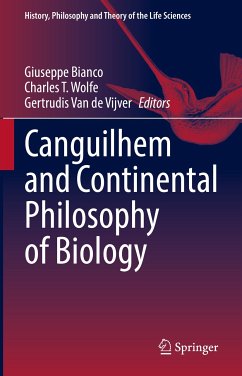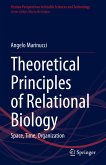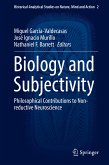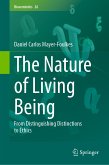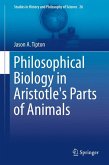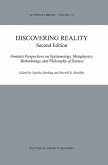This edited volume presents papers on this alternative philosophy of biology that could be called "continental philosophy of biology," and the variety of positions and solutions that it has spawned. In doing so, it contributes to debates in the history and philosophy of science and the history of philosophy of science, as well as to the craving for 'history' and/or 'theory' in the theoretical biological disciplines. In addition, however, it also provides inspiration for a broader image of philosophy of biology, in which these traditional issues may have a place. The volume devotes specific attention to the work of Georges Canguilhem, which is central to this alternative tradition of "continental philosophy of biology". This is the first collection on Georges Canguilhem and the Continental tradition in philosophy of biology. The book should be of interest to philosophers of biology, continental philosophers, historians of biology and those interested in broadertraditions in philosophy of science.
Dieser Download kann aus rechtlichen Gründen nur mit Rechnungsadresse in A, B, BG, CY, CZ, D, DK, EW, E, FIN, F, GR, HR, H, IRL, I, LT, L, LR, M, NL, PL, P, R, S, SLO, SK ausgeliefert werden.
Es gelten unsere Allgemeinen Geschäftsbedingungen: www.buecher.de/agb
Impressum
www.buecher.de ist ein Internetauftritt der buecher.de internetstores GmbH
Geschäftsführung: Monica Sawhney | Roland Kölbl | Günter Hilger
Sitz der Gesellschaft: Batheyer Straße 115 - 117, 58099 Hagen
Postanschrift: Bürgermeister-Wegele-Str. 12, 86167 Augsburg
Amtsgericht Hagen HRB 13257
Steuernummer: 321/5800/1497
USt-IdNr: DE450055826
Bitte wählen Sie Ihr Anliegen aus.
Rechnungen
Retourenschein anfordern
Bestellstatus
Storno

